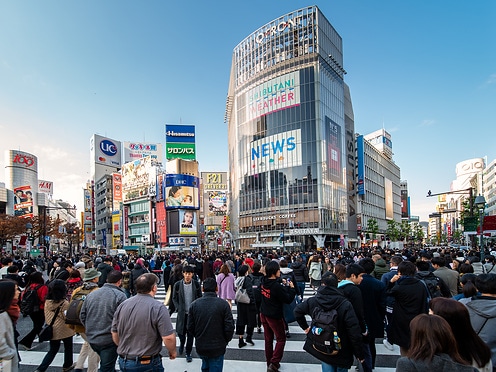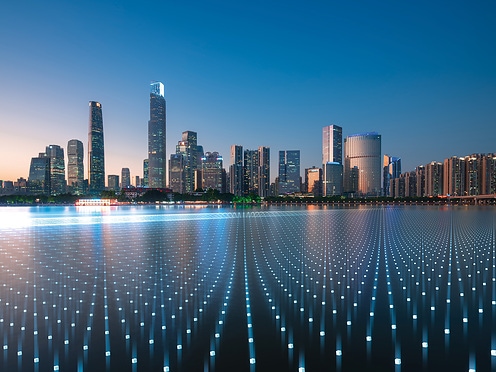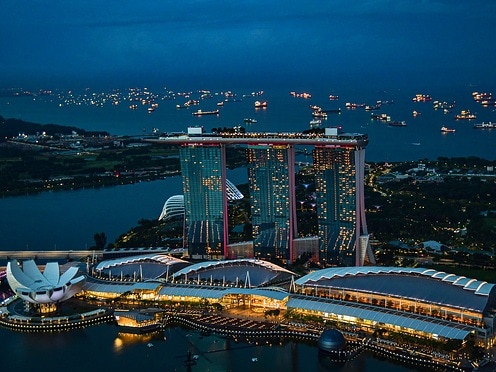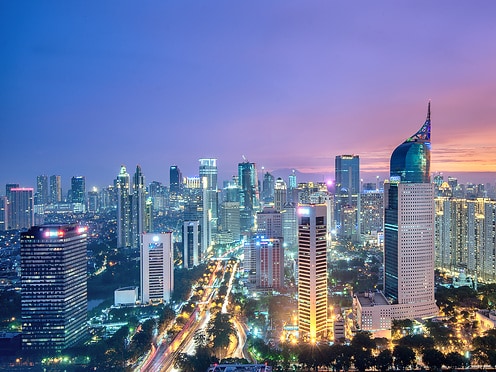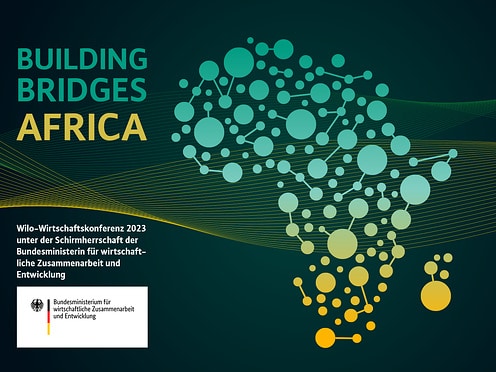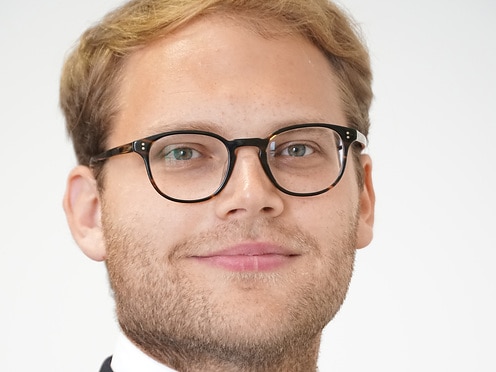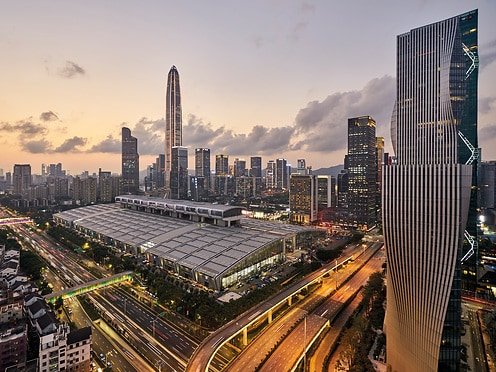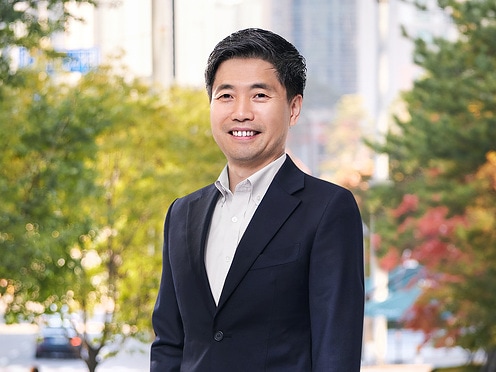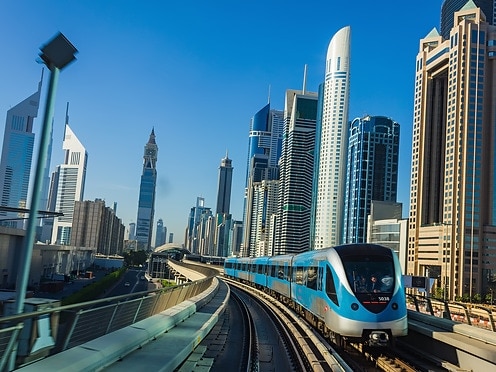Interview with Sigmar Gabriel

In January 2022, we spoke to the former German Vice-Chancellor and current Chairman of Atlantik-Brücke about hybrid globalisation, competition between the USA and China, and how important it is for companies to ensure that they keep informed about geopolitics.
Sigmar Gabriel was born in Goslar in 1959. He was the leader of the Social Democratic Party of Germany (SPD) from 2009 to 2017 and the Vice-Chancellor of the Federal Republic of Germany from 2013 to 2018.
He has also served as the Minister-President of Lower Saxony, the Federal Minister of the Environment, the Federal Minister for Economic Affairs and Energy, and the Federal Minister for Foreign Affairs.
He was elected as the Chairman of Atlantik-Brücke e.V. in 2019.
Mr Gabriel, you are the Chairman of Atlantik-Brücke, an organisation whose mission is to maintain and intensify the relationship between Germany and Europe on the one hand and the USA on the other.
What are the challenges of these transatlantic relations?
When we talk about transatlantic relations nowadays, we mean more than just the Atlantic. For example, we mean how western democracies should respond to the challenges posed by authoritarian states, especially China.
The USA has viewed China, not Russia, as its greatest rival for some time now. As they increasingly focus on competition with China, one could almost say the Indo-Pacific is the new Atlantic. At the same time, the USA has a sense of imperial overstretch.
In other words, it feels it is no longer able to be both a leading economic power and the protector of the global political order. The USA is saying that it needs to focus on remaining an economic leader, which is why it is withdrawing from parts of the world and concentrating its forces on the competition with China.
What are the consequences of this change in focus for Europe?
In the past, Europeans delegated a large portion of their international interests to the USA. In the current conflict with Russia, too, we can see that Europe is again attempting to shift the responsibility for crisis leadership onto the USA.
This shows that Europe is not remotely prepared for the shift in the Americans’ attitude towards their global presence, even though it will have dramatic consequences. The power vacuum that the Americans leave behind tends to be filled by authoritarian states: by Iran in the Middle East, by Turkey, by Russia, and by China.
“America wants to be the leader of the democratic world, but it no longer wants to be solely responsible.”
The Europeans are spectators. America wants to be the leader of the democratic world, but it no longer wants to be solely responsible. When US President Joe Biden says “America is back”, he means in the role of the leading nation in the democratic world. He is not talking about a return to the allencompassing responsibility of the past.
In order to maintain its economic leadership, the USA is continuing to pursue a protectionist approach under Joe Biden, at least to a certain extent. Germany has been one of the big winners of globalisation over the past two decades.
How will we be affected by these isolationist tendencies, which are by no means only being observed in the USA?
We need to get used to something that could be called hybrid globalisation. Some parts of globalisation will undoubtedly remain in place. Commodity markets, large parts of the movement of goods and services – much of this is organised through the international division of labour, and this will still be the case in the future. But there will be other areas in which companies are confronted with the question of which system they want to choose.
This applies in particular to the digital world, the world of artificial intelligence and digital business models. The competition between the USA and China in this area is particularly tough, and it might be good for there to be a part of the international value chain that does not rely on the international division of labour in future.

Do you believe German industry is taking the right steps to address this challenge?
The German Federal Government provided a good description of the situation in its Indo-Pacific strategy last year. The German economy as a whole is excessively focused on China to the detriment of other nations in the region. We rarely think about Indonesia. And we think of India as being too complex. We have at least discovered Vietnam to an extent. But looking more at the wider region and concentrating less on China is one of the answers. Another aspect is that we are seeing a process of relocalisation that is also driven by the digital transformation.
The outsourcing of labour-intensive work processes will become increasingly attractive as the digitalisation of production chains continues. The price of work will become less important as a competitive factor, and other economic conditions will become more important – such as stability, secure energy supply, and the availability of skilled staff.
“Neither party would benefit from the other party collapsing.”
When you say that companies in the digital sphere will have to choose between two systems, does this mean the sector will also see a fight between these systems?
It is hard to say. I suspect the next ten years will see efforts to balance out three different areas. The first is the course of confrontation between Europe and the USA on the one hand and China on the other. This relates in particular to human rights issues, Taiwan, and the extent to which free navigation in the China Seas is secured.
A confrontation with China on these matters will be unavoidable. The second area is economic competition. I believe the USA and China are making progress towards establishing conditions for hard but fair competition. Neither party would benefit from the other party collapsing. There is a battle for top spot and technology leadership, but it is not a question of winning or losing. Nor is total isolation the goal. The two economies are far too closely intertwined for that.
When it comes to digitalisation, however, European companies may well find themselves having to either maintain a presence on both sides or choose one of the two digital systems. And then there is the third area, which is where cross-border cooperation is required: This includes the pandemic, climate protection and nuclear arms control.
“I can only encourage Wiloto press ahead with its approach.”
Within its organisational structure, Wilo has established “Corporate Political Responsibility” as a dedicated unit so that it can keep abreast of geopolitical developments as a globally active group and further intensify its cooperation with relevant stakeholders around the world.
What would be your advice to a company looking to position itself correctly in this multipolar world?
I can only encourage Wilo to press ahead with its approach.
The German business model benefits from us being more or less the most open economy in the world, but our prosperity is also built on the openness of the global markets. The German economy has a trade openness indicator of over 90 percent. By contrast, France comes in at around 60 percent and the USA at roughly 30 percent. Anything that involves increased protectionism, trade disputes and geopolitical rivalry is a risk to our business model. That is why I think it would be smart for German companies to start doing what has long been commonplace for American and British companies: finding out about geopolitical changes and ensuring that they always have the latest information. This is still some?thing of a rarity in Germany. It is practised by just a few large companies, even though the ramifications for SMEs can also be huge. As far as I am concerned, the correct approach is for companies to include the risk of global power shifts and political changes in their non-financial risks and to seek to take corresponding precautions.

